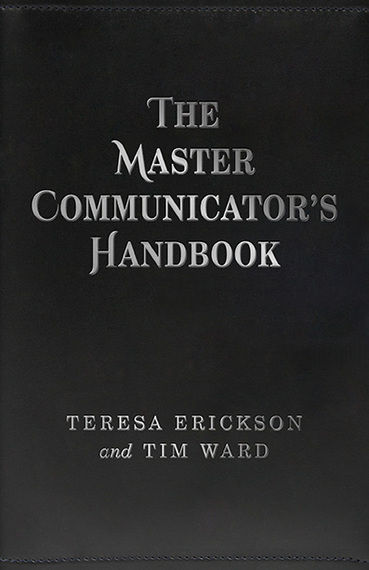(This blogpost was written together with Teresa Erickson and originally published on the Society for conservation Biology blog).
In our careers as journalists and advisors to scientists, economists, policy experts and leaders in how to deal with the media, one of the most important skills that we stress is staying on message. It's not a skill most experts are naturally good at. In many fields a question is an opportunity for an expert to think out loud and explore many possible answers. Unfortunately, what works in a classroom or policy debate can backfire badly in media interview.
In a media interview, the purpose of a question is different. Journalists use just a few of your words to support the narrative of the story they want to tell. For an expert, your key job during an interview is to get your main message and important information used in the story. An interview question is an opportunity to delivery your message in a convincing manner.
We can imagine some of you responding, "Why would I want to engage at all if that's the level of discourse?" The answer is because the media is a very efficient way to spread your key messages to policy makers, social influencers, and the general public. These groups make decisions, pass laws, and vote. They won't be well informed about your ideas and research unless you tell them. And to tell them, you have to get through the filter of the journalist who often is not trained in your field of expertise and may not know the right questions to ask. But they do know how to make a story interesting so people will actually read it.
So, in a media interview, the burden falls on you to get your important information across. That means first, having a clear message. Second, repeating it often enough (but not too much) that the journalist gets it. Third, staying on message and avoiding tangents so that you don't end up with a different story than the one you wanted to tell. (For more on clear messages, see Chapter 1 of our book, The Master Communicator's Handbook.)
One of our media course graduates, conservation biologist (and Smith Fellow) Scott Stephens, a regional director at Ducks Unlimited Canada, puts it like this: "In TV they typically pull only a 10-15 second clip from a much longer back and forth. So if you don't repeat your key message in various forms, they will undoubtedly pull the only 'off message' clip that you provide and that is what will run."
Scott learned from us the art of "redirecting:" turning an off-topic question deftly back to the issue you want to talk about. It's not actually that hard. You give a very short one sentence response to the question being asked, then take the initiative and bring the conversation back to your research. Scott says he uses phrases such as "what's really important..." and "what is especially relevant on this issue is...."
Scott continues, "I also did a radio interview last spring where I felt like the host was baiting me by ranting during the commercial breaks about his own political views (we were talking about new legislation introduced on wetland policy). He didn't try to draw me into picking sides while on the air but I was very cognizant of giving him any fodder that he might look to find controversy around when the microphone was on."
Good media sense kept Scott focused on his issue.
For scientists and other experts building their skills at staying on message, here are six tag lines we find helpful for staying on message:
1. "I hear your concern about X, and while that's important, the heart of our research is really Y. Here's why Y matters most..."
2. "You've raised an interesting point about X. Another interesting point that's closer to our research is Y..."
3. "I'm not familiar with the details of the issue you raised, as it outside the scope of our research. What I can tell you about Y is...
4. "Well, we can agree to disagree about X. I would like to return to the topic of my research and share something about Y that we've not yet touched on..."
5. "I can't really speculate about X. Our research focuses on Y, and here's what I can tell you..."
6. "While I am familiar with the issue of X, I'm here today to talk about the findings of our newest research on Y. Here's what we think is most important..."
Tim Ward and Teresa Erickson are the owners of Intermedia Communications and the authors of The Master Communicator's Handbook.

